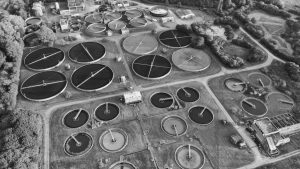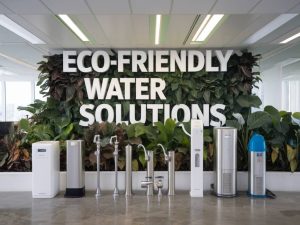how to incorporate water conservation in your business strategy

how to incorporate water conservation in your business strategy
« `html
Understanding the Importance of Water Conservation in Today’s Business Environment
As mounting environmental concerns grip the globe, water conservation emerges as a pivotal aspect of sustainable business strategies. Water, a finite resource, is under unprecedented strain. This has been brought about by population growth, industrial demands, and climate change effects. Companies that embed water conservation into their core operations not only champion environmental stewardship but also gain a competitive advantage. By adopting efficient practices, businesses can navigate evolving regulatory frameworks and mitigate risks related to water scarcity.
Integrating Water Conservation into Business Strategy
For businesses looking to adopt sustainable practices, integrating water conservation into their strategic planning offers numerous benefits. Harnessing the potential of water-saving techniques can lead to significant cost reductions, enhanced brand reputation, and alignment with corporate social responsibility goals.
Conducting a Water Audit: The First Step Towards Water Efficiency
A comprehensive water audit serves as the foundation of any water conservation initiative. This assessment identifies current water use patterns and highlights areas for improvement. By understanding water flow throughout their operations, businesses can pinpoint wastage and inefficiencies. Once identified, measures can be taken to rectify these inefficiencies and optimize overall usage.
Implementing Water-Saving Technologies and Practices
Numerous technologies can aid in reducing water usage. These include low-flow fixtures, rainwater harvesting systems, and greywater recycling. Implementing such innovations not only curtails water consumption but also decreases operational costs. Moreover, regular maintenance of water systems ensures peak performance and identifies leakages early on, preventing unnecessary wastage.
- Low-flow fixtures: Reducing the volume of water used per interaction.
- Rainwater harvesting: Capturing and reusing rainwater for non-potable purposes.
- Greywater recycling: Reusing water from sinks and showers for applications like irrigation.
Embedding Water Conservation in Workplace Culture
For lasting success, businesses must foster a culture of water conservation. Employee engagement is crucial. By educating teams on the importance of water efficiency and providing training on new systems, businesses can enhance participation and responsibility. Incentive programs further motivate staff to adhere to conservation goals, reinforcing the corporate commitment to sustainability.
Monitoring and Reporting Water Usage
Regular monitoring and transparent reporting of water usage are essential for sustained water conservation. Automated systems can provide real-time data, enabling businesses to adapt strategies swiftly to reduce consumption. Transparent reporting not only holds businesses accountable but also supports relationships with stakeholders, demonstrating genuine commitment to sustainable practices.
Partnerships and Collaborations for Water Conservation
Partnering with industry leaders, environmental organizations, and governmental bodies can amplify water conservation efforts. Collaborative initiatives lead to the sharing of resources, knowledge, and best practices. Businesses that engage in partnerships often find innovative solutions to long-standing challenges, further enhancing their conservation strategies.
Examining the Economic Benefits of Water Efficiency
Dedicated water conservation efforts often translate into substantial economic benefits. Reduced utility bills, minimized water-related disruptions, and potential tax incentives are direct financial gains for businesses. Furthermore, companies that demonstrate sustainable practices can improve their market position, attracting environmentally-conscious consumers and investors.
Case Studies: Successful Water Conservation in Businesses
Several businesses have successfully integrated water conservation into their core strategy:
- XYZ Corporation: Through the installation of water-efficient fixtures and rigorous monitoring, XYZ Corporation reduced their water usage by 30% over two years.
- GreenTech Manufacturing: By adopting greywater recycling and rainwater harvesting, GreenTech decreased their water footprint and achieved significant cost savings.
Such success stories inspire other businesses to take actionable steps towards water efficiency. By learning from these examples, companies can tailor strategies to fit their specific operational needs.
Conclusion: Embracing Water Conservation as a Core Business Strategy
By integrating water conservation into their business models, companies set themselves on a path of sustained growth and environmental responsibility. The tangible benefits, from cost savings to enhanced reputation, illustrate the profound impact of conservation efforts. As the global narrative shifts towards sustainability, businesses that prioritize water efficiency will not only thrive but set benchmarks for the industry, leading by example and fostering a culture of conscious resource management.
« `





